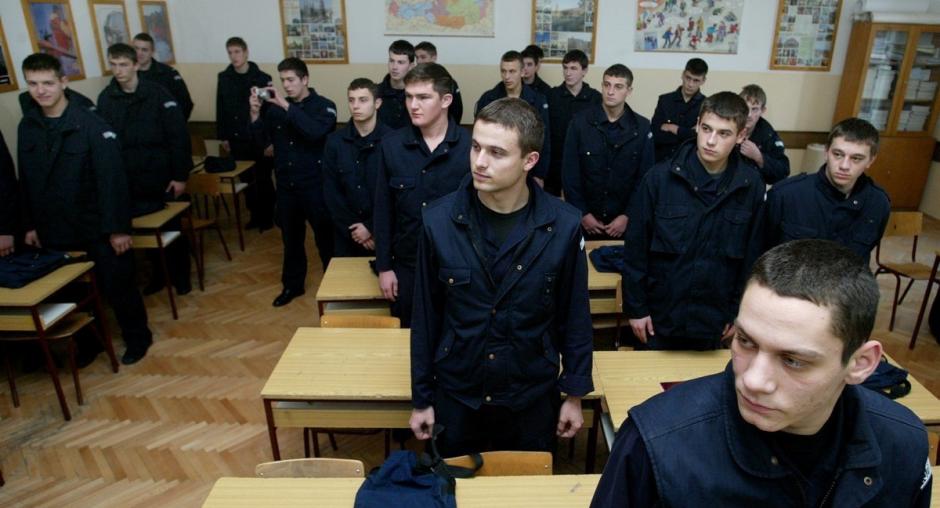Modernizing police education in Serbia
In partnership with the OSCE, Serbia is taking major steps towards building a police service that meets the needs of a changing society. Central to these efforts is the transformation of the Police High School in Sremska Kamenica, Vojvodina, into a modern police training centre.
From high school to training centre
Transforming the Police High School was declared a top priority in December 2004 at a roundtable on modernizing police education organized by the OSCE Mission to Serbia. The Ministry of Interior therefore froze enrolment for the 2006-07 academic year and set the course for change.
The shift from high school to training centre is a historic break with the past. Until September 2006, some 400 teenaged boys enrolled annually at the Police High School to follow a four-year programme - unchanged since the 1960s - that included courses in biology, literature and drama, and some military-type training activities.
All that will now change, as Mirko Umicevic, the co-ordinator of the future training centre, explains: "Those responsible for police education in the Ministry of Interior have recognized that the socialization and isolation of police recruits from the general public at such a young age is counterproductive."
The new curriculum at the Basic Police Training Centre will train both men and women who have completed their secondary education. Changes to the school's organization and premises, and the development of the new curriculum and training methodology, are already under way. Enrolment of the new programme's first group of students is planned for autumn 2007.
To help the school's transformation and police reform in general in Serbia, the Ministry of Interior and the OSCE Mission have established a steering committee engaging all decision-makers in the process. "We all recognize that this is a long-term endeavour, and we commend the Ministry for its commitment to realizing this strategic goal," says Ambassador Hans Ola Urstad.
The push for reform
The motivation for change, says former Police High School Director Dragic Josifovic, stems from the recommendations of international police experts, current trends in police education and the needs of Serbian society.
"The concept, which was supported by the Police High School staff, the Ministry's top management and the OSCE, will lead to more efficient and cost-effective training," says Josifovic, who now heads the Ministry's Directorate for Police Education, Training, Professional Development and Science.
Male and female cadets from communities across the country will be encouraged to enrol at the new training centre, helping to ensure a police service that mirrors the society it serves.
Curriculum reform has included introducing the principles of human and minority rights, police ethics and community policing. The aim is to prepare cadets for their role in serving the public, responsive to the needs of their communities. To supplement their classroom learning, cadets will also undergo a field training programme.
Setting the course
To promote the concept of practical training for young adults, the OSCE has been advising on curriculum development and staff capacity-building. It has also been assisting with renovating school facilities, including classrooms, dormitories and training grounds.
In June 2006, the OSCE organized a donors' conference to encourage international support for the refurbishment project. Norway has donated some 715,000 euros, and the Serbian authorities allocated around 465,000 euros in 2006 and committed an additional 1,496,650 euros for 2007.
Funding obtained so far will allow for the first pilot course to begin in autumn 2007 as planned. But according to Josifovic, further support from the international community will be needed to successfully complete the project.
Replacing old ideas
One of the main challenges, Josifovic explains, has been what he calls "the mind shift" that is needed for reforms to move forward. It has not always been easy convincing those involved to accept the idea that obsolete practices should be abandoned in favour of life-long learning that focuses on the individual.
Miroslav Mijailovic is Assistant Director of the Police High School: "Transforming the school is a priority for the Ministry of Interior and the OSCE. Police education will define the future police culture in Serbia." He adds that the basic training programme will also help to standardize police training across the country.
Work to rehabilitate the School's infrastructure will start in January 2007.

